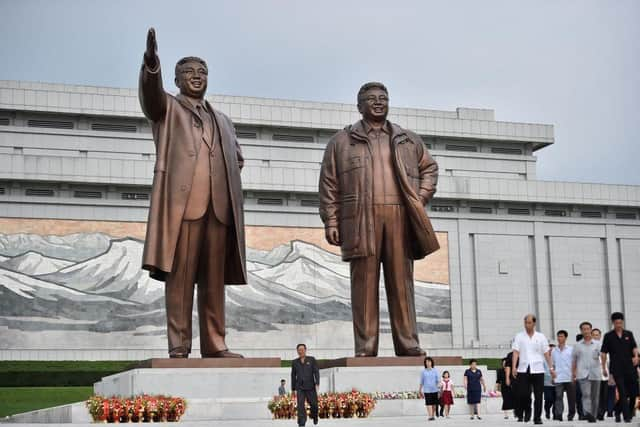As North Korea's first athletes travel overseas since the Covid pandemic, how will Pyongyang react to those returning after years abroad?
While here in Scotland, we are hearing rumours of a new Covid wave, fuelled by mutating variants, the secretive nation of North Korea seems to be finally beginning to open up after a long period of pandemic closure.
When I say that, obviously I don’t mean “open up” in the way that any other country is open. North Korea’s borders are always tight and the goings-on within the Communist country are hugely concealed and controlled by dictator Kim Jong Un and his close circle of government.
Advertisement
Hide AdAdvertisement
Hide AdDuring the height of the pandemic, North Korea shut off entirely, even banning freight traffic over its border with China, which only resumed in January 2022. Mr Jong Un long claimed there were no cases of Covid within North Korea, despite rumours spreading of a mysterious “fever” that was hitting its population.


Now the first athletes to leave North Korea since the pandemic have travelled to China, destined for the Taekwondo world championships in the Kazakhstan capital of Astana.
The outward movement of North Korean athletes comes as a tourism company claimed last week the North Korean authorities are preparing to ease Covid border restrictions to allow its own citizens – many who have been stuck in neighbouring countries such as China since early 2020 – back into the country. South Korean media outlets have reported as many as 400 students who had been studying overseas when the pandemic struck could return this week.
However, for those who do so, it may not be an easy transition.
Defectors have claimed North Korean students studying abroad usually return to the country once a year for “re-education” of the North Korean system and have warned the authorities will be greatly suspicious of those who have been away for far longer due to the pandemic, where they could have been susceptible to outside influence.
This is despite many of them having lived in dormitories within the North Korean Embassy in China, where they can be carefully watched.
One man, who defected from North Korea and now works in the South Korean capital Seoul, told US news website NK News the students will be under strict surveillance from Pyongyang when they return.
“In the worst-case scenario, this means going to a political prison camp,” he said. “The lightest punishment would be between six months to a year of forced labour in a mine or on a farm while re-learning about the North Korean system.”
Advertisement
Hide AdAdvertisement
Hide AdNorth Korea's potential re-opening comes just weeks after a US soldier, Private Travis King, entered the country during a tour of the demilitarised zone on the border between the two Koreas. It was a move the North this week claimed was due to "ill feeling against inhuman maltreatment and racial discrimination within the US Army”. He hoped, Pyongyang has claimed, to seek refuge in North Korea.
The US Government, which says it is working to return Private King home, has no diplomatic relations with North Korea, with citizens previously offered some consular support by the Swedish embassy. However, foreign diplomats have not yet been allowed back into North Korea since the pandemic.
Whether that will change as the country’s Covid restrictions ease remains to be seen.
Comments
Want to join the conversation? Please or to comment on this article.
